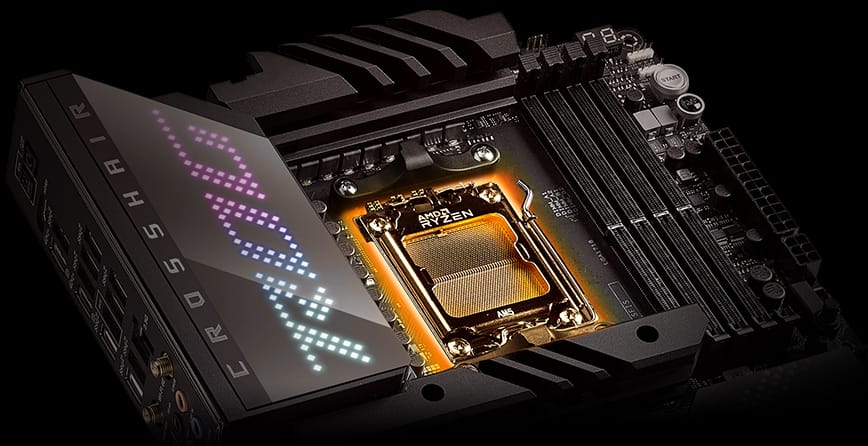A number of users with AMD X670E motherboards are facing an annoying issue where their PCIe 5.0 SSDs are slowing down to speeds comparable to the outdated PCIe Gen 1. This problem is not limited to just one brand or model; motherboards from various manufacturers, including Asus and MSI, are experiencing similar difficulties.
Performance Drops Over Time
At first, the Gen 5 SSDs operated at their advertised high speeds. However, as time went on, users began to notice significant drops in performance. Additionally, some individuals are encountering system freezes, crashes, or even instances where their computers won’t start up properly if both the Gen 5 SSD slot and the Gen 5 graphics card slot are occupied.
Investigation by Crucial
Crucial, the company behind the affected T700 and T705 SSDs, investigated the situation and determined that the root of the problem lies within the X670E motherboards. They conducted tests with various boards and setups and successfully reproduced the performance slowdowns associated with the Gen 5 SSDs.
Crucial has advised those impacted by this issue to contact their motherboard manufacturer for a BIOS update to resolve the problem. They noted in a forum, “The issue seems to occur when a Gen 5 SSD is connected to a Gen 5 slot on the motherboard, which is why you are not experiencing this problem with your Gen 4 drive. If you were to connect the Crucial T705 SSD to Gen 4 speeds at all times, this issue would likely be resolved.”
Possible Bandwidth Conflicts
Although the exact cause has not been pinpointed yet, some users speculate that the primary PCIe 5.0 slot for graphics cards could be monopolizing bandwidth with the first Gen 5 SSD slot in certain configurations, negatively impacting performance.
On a positive note, switching to a PCIe 4.0 SSD or operating the graphics card at Gen 4 speeds can temporarily alleviate the issues. However, this is not an ideal solution for those who invested in PCIe 5.0 for better performance.
Motherboard manufacturers like MSI have released some BIOS updates that have resolved the issue for some users, but others continue to experience the same problems.


Leave a Reply